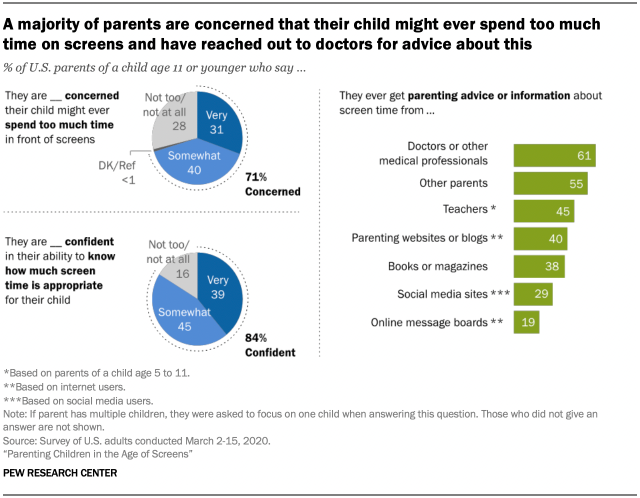In an era where digital devices are ubiquitous, parents face a daunting challenge: how to raise well-rounded, emotionally intelligent children without succumbing to the convenience of mobile phones as digital babysitters.

Parents with young children themselves make clear they are anxious about the effects of screen time. Fully 71% of parents of a child under the age of 12 say they are at least somewhat concerned their child might ever spend too much time in front of screens, including 31% who are very concerned about this. – Pew Research
This article delves into the nuances of parenting across three critical developmental stages—toddlerhood, early childhood (ages 5-8), and preadolescence (ages 10-15)—offering strategies for those who choose to delay or limit their child’s exposure to mobile devices.
It explores the potential drawbacks of early mobile phone usage, presents alternative activities to screen time, and suggests dialogues that foster understanding and cooperation between parents and children.
Understanding the Impacts of Mobile Phones on Children
Cognitive and Emotional Development: Research consistently shows that excessive screen time can hinder the cognitive and emotional development of children. It can affect language acquisition, attention spans, and the ability to manage emotions. Early exposure to screens has been linked to reduced sleep quality and quantity, which is crucial for a child’s development.
Social Skills: Mobile phones can also impede the development of essential social skills. Face-to-face interactions teach children how to read non-verbal cues, share, take turns, and empathize with others—skills that are not honed when a child’s focus is on a screen.
Physical Health: The sedentary lifestyle associated with prolonged screen time poses risks to physical health, including obesity, vision problems, and reduced overall physical activity levels.
Strategies for Different Age Groups
1. Toddlers (Up to Age 5)
At this stage, children are highly impressionable and their brains are developing rapidly. The American Academy of Pediatrics recommends avoiding the use of screen media other than video chatting for children younger than 18 months.
- Strategies:
- Engage in Interactive Play: Opt for physical toys that stimulate creativity and problem-solving, such as blocks, puzzles, and art supplies.
- Read Together: Foster a love for stories by reading books aloud.
- Nature Time: Spend time outdoors. The natural world is full of sensory experiences that no screen can replicate.
2. Early Childhood (Ages 5-8)
Children in this age group are developing their interests and learning to socialize.
- Strategies:
- Extracurricular Activities: Enroll them in sports, music, or art classes to explore their interests.
- Family Game Nights: Introduce board games that encourage strategic thinking and teamwork.
- Educational Outings: Visits to museums, zoos, and libraries can be both educational and entertaining.
3. Preadolescence (Ages 10-15)
As children approach adolescence, peer influence increases, and the desire for a mobile phone can become a point of contention.
- Strategies:
- Tech-Free Zones: Establish areas in the home where no electronics are allowed, promoting face-to-face interaction.
- Involve Them in Decision Making: Discuss the reasons for limiting screen time and involve them in setting guidelines.
- Alternative Tech: Introduce them to computers or tablets for educational purposes, with strict time limits and monitoring.
Parent-Child Dialogues That Make a Difference
Creating an Open Dialogue: Communication is key. When discussing the topic of mobile phones, approach the conversation with empathy, acknowledging their feelings and perspectives.
- For Toddlers: “We’re going to play with these blocks instead of watching a video. Let’s see what we can build together!”
- For Early Childhood: “I understand that you want to play games on my phone, but it’s important to do a variety of activities. How about we go for a bike ride or draw something instead?”
- For Preadolescents: “I know many of your friends have their phones, but let’s talk about why we’re choosing to wait. We can discuss getting a phone when we believe you’re ready for the responsibility.”
Conclusion
Parents must recognize that their own screen habits set a precedent for their children. Modelling healthy technology use is crucial.
Solutions Beyond Screen Time:
- Quality Time: Invest in quality family time without screens. This could be hiking, cooking together, or simply talking about each other’s day.
- Creative Outlets: Encourage activities that allow children to express themselves creatively, such as painting, writing, or playing an instrument.
- Educational Resources: Utilize educational apps and programs sparingly and as part of a balanced approach to learning.
Choosing to limit or delay the introduction of mobile phones into your child’s life is a commendable decision that comes with its set of challenges and rewards. By focusing on alternative activities that promote physical, cognitive, and emotional development, parents can provide their children with a rich, balanced upbringing.




 Free YouTube Video Downloader Online. Try Now!
Free YouTube Video Downloader Online. Try Now!